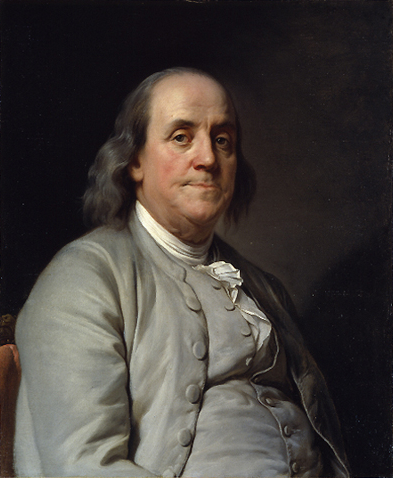Renowned polymath, Benjamin Franklin, is perhaps one of the most accomplished individuals in the history of the United States. His list of achievements is expansive and the principles he used to guide his life would fit wonderfully in the open source communities that are becoming so common today. He was a pioneer of many ideas and communities that have been reflected today in the rise of collaborative workspaces like maker/hacker spaces and the increasing dissemination of information provided by the internet.
Franklin was a true Renaissance man and had an incredible range of knowledge and abilities. He is remembered for his inventions, political activism, private library, civic contributions, diplomatic ability, printing, and satire, just to name a portion of the many areas he contributed to. He truly carried out the maker attitude, well before the concept of a makerspace had even been conceived.
The Junto club, which he helped create, drew individuals from a wide variety of backgrounds to work together for self improvement. The theories behind this club almost perfectly match the theories behind the makerspace movement which are based on bringing individuals from different backgrounds together to create new ideas.
The Library Company of Philadelphia was the first successful lending library, and was founded by Franklin. From his work with this library and the Junto club, it seems that Franklin was largely dedicated to democratic progress, and often solutions he set forward were based on the needs of his community and solved problems in a democratic way. While not all open source projects are run democratically, the very core of the greater majority is based on the notion of democratic contributions from a wide variety of people.
I want to share my favorite quote from Franklin’s biography, and it has to do with the concept of intellectual property.
That, as we enjoy great advantages from the inventions of others, we should be glad of an opportunity to serve others by any invention of ours; and this we should do freely and generously.
Franklin was an accomplished inventor, and he was driven to do so through his desire to improve the human experience. He wanted to share ideas freely so that everyone could benefit from the development of new ideas, regardless of their societal rank, economic success, or any other dividing factors. I don’t typically like to predict what historical figures would believe today, but Franklin was adamantly opposed to the notion of intellectual property and patents. I think he would be a very large supporter of all of the work happening today in open source.
While reading the autobiography of Benjamin Franklin, I was particularly drawn to the thirteen virtues that he applied towards his own life. In honor of him, I would like to make my own adaptation of these towards open source.
-
Temperance – Demonstrate self-restraint in your efforts to change an open source project.
-
Order – Let all contributors have their place, let each need have its time.
-
Resolution – Resolve to help where you can, determine to finish what you resolve.
-
Frugality – Use all efforts to benefit yourself or others. Do not be wasteful.
-
Moderation – Avoid extremism. Do not hold grudges against other contributors.
-
Industry – Ensure that all contributions are employed for something useful, avoid unnecessary actions
-
Cleanliness – Tolerate no uncleanliness in design, code, or structure.
-
Tranquility – Don’t be disturbed by errors, problems, or failures.
-
Silence – Participate only when you benefit others, avoid frivolous contributions.
-
Sincerity – Do not use open source projects for deceit, act honestly towards other contributors and users.
-
Justice – Recognize the achievements of others and consider all viewpoints.
-
Chastity – Do not look to injure your own or another’s reputation. Strive to keep the community peaceful.
- Humility – Consider all other viewpoints equal to your own.


